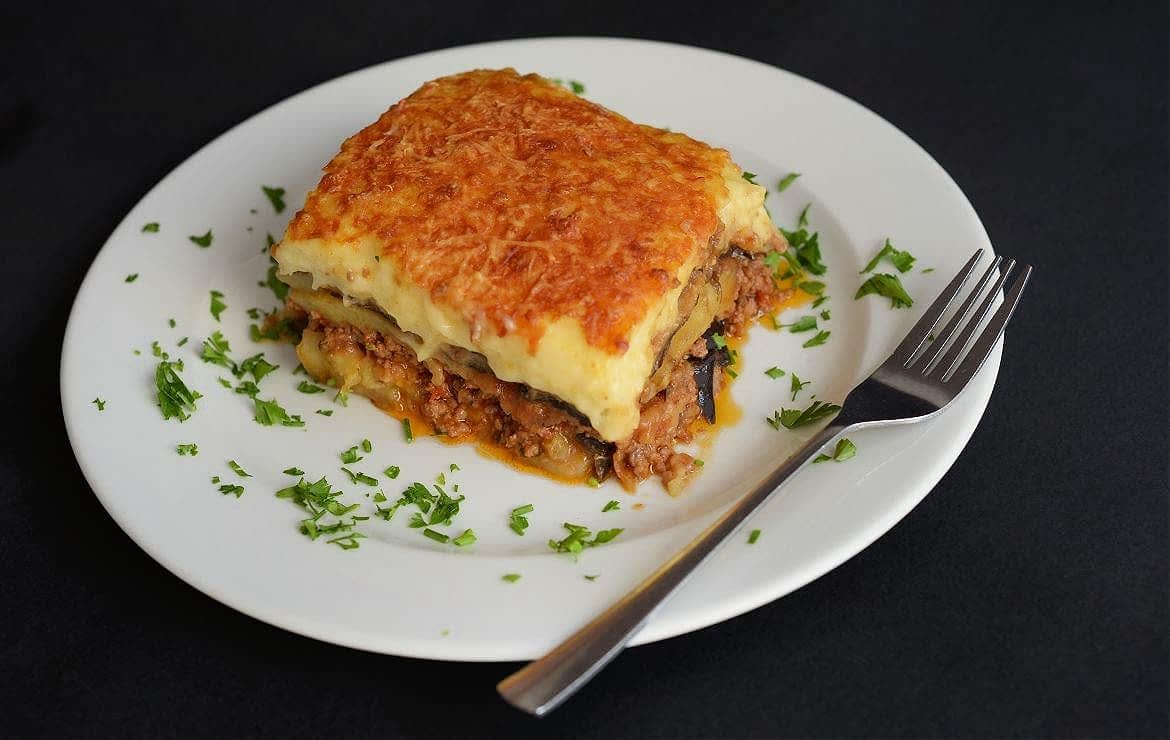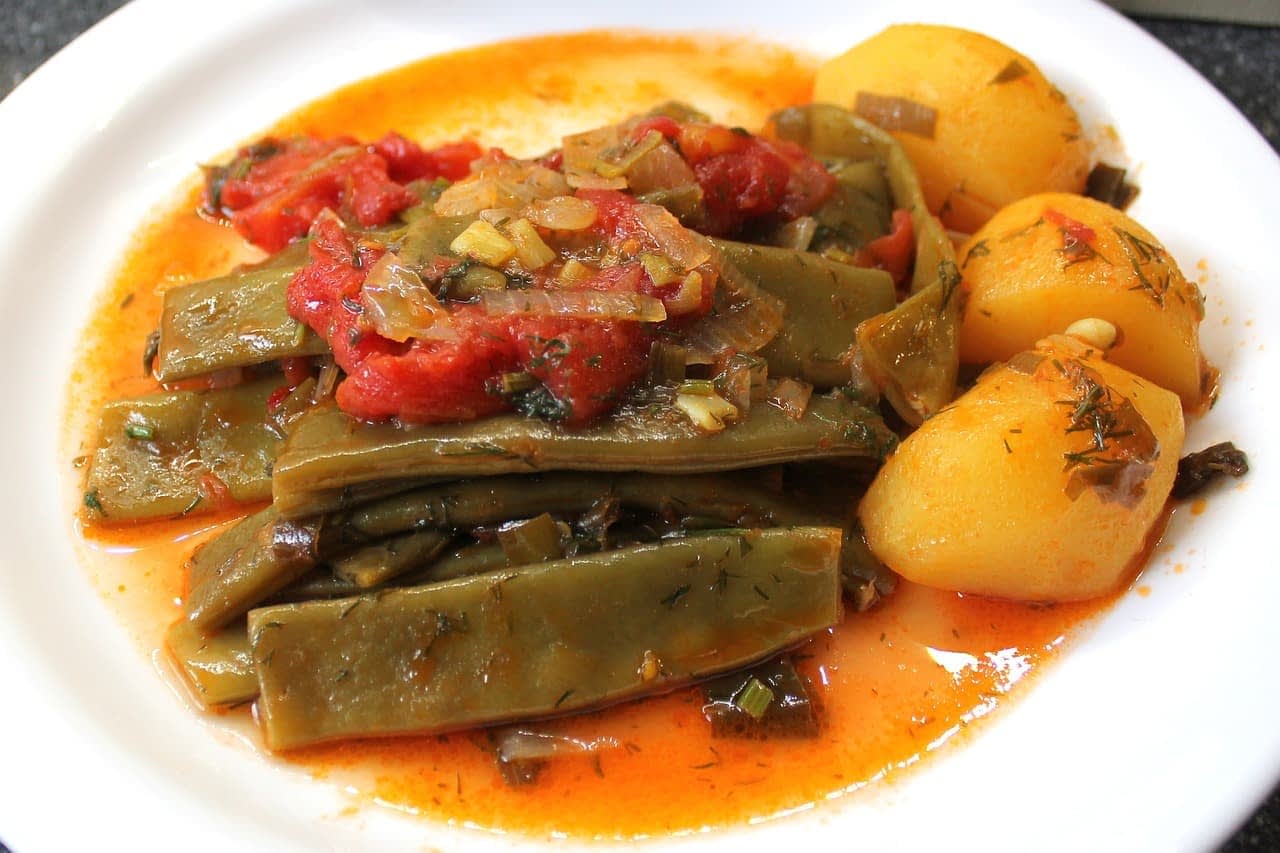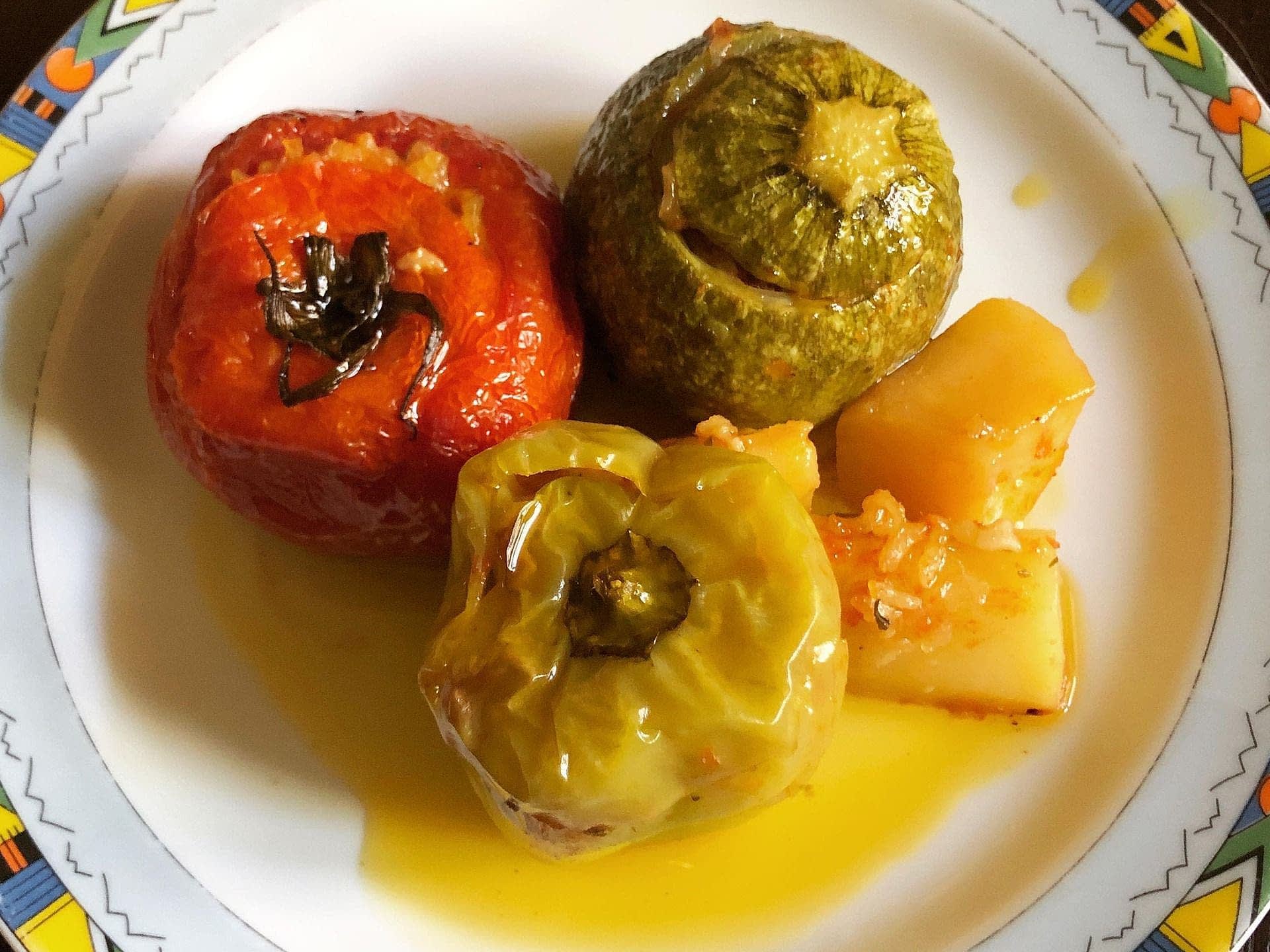Summer in Greece is the perfect time to try some of the country’s classic dishes. With a tradition lost in the mists of time, the country’s cuisine emphasizes the staples of the celebrated Mediterranean diet in their finest form, with extra virgin olive oil at the forefront.
“The Greek summer is not only about the sea and the sun, it is also about flavors,” Maria Prokopiou, an Athens-based endocrinologist and diabetologist, told Olive Oil Times. “Flavors full of colors that reflect the country’s rich history and fertile land.”
Greek cuisine is a unique bouquet of colors and flavors. Apart from the fantastic taste, it also provides us with a wealth of trace elements, antioxidants and vitamins that have many health benefits.
“It is virtually impossible to visit Greece in the summertime and not taste the tomatoes, eggplants, beans, okra and zucchini, along with herbs such as parsley, dill, oregano and mint in a variety of recipes around the country.”
While the colorful Greek salad captivates taste buds, Prokopiou named a few more dishes that are a delight to try in the hot Greek summer.
Moussaka

Extra virgin olive oil plays a central role in the king of traditional Greek cuisine, moussaka. (Photo: Spyros Papailias via Facebook)
Served in every restaurant and tavern across the country, moussaka is a meat and eggplant casserole topped with a layer of béchamel sauce that turns golden brown when baked.
“The king of the traditional Greek cuisine is the moussaka,” Prokopiou said. “The original recipe includes layers of sautéed eggplants and ground beef meat prepared with tomato and herbs, blanketed in a creamy béchamel sauce made with milk, flour and olive oil.”
Although the basic béchamel is made with butter mixed with flour to form a roux, a twist often found in Greece is to replace the butter with an equal amount of olive oil for a healthier outcome.
Moussaka is widely thought to have emerged in the Middle East centuries ago. However, its exact origins are mysterious. Over time, the dish incorporated elements from different cuisines, including the Ottoman Empire, to become the iconic Greek dish known worldwide.
Legend has it that the French touch to the dish – the béchamel – was added by the renowned Greek chef and advocate of French gastronomy Nikolaos Tselementes in the 1920s.
See Also:Cooking With Extra Virgin Olive OilAlong with excellent flavor, moussaka offers a variety of nutrients to the human body.
“The eggplant contains many antioxidants in its skin and flesh such as fiber, potassium and nasunin, a substance associated with lowering blood cholesterol and considered protective for brain cells,” Prokopiou said.
“The human body also gets good quality animal protein and iron from the ground meat, calcium from the milk used in the sauce and energy from the flour,” she added.
Nasunin, a chemical constituent found in abundance in eggplant peels, has attracted much attention from scientists for its beneficial effects on human health, such as reducing brain inflammation and its potential applications in the food industry.
“For those on a diet or watching their daily caloric intake, however, moussaka should be consumed in moderation as it can be high in calories depending on whether the eggplants are fried or baked and how lean the meat is,” Prokopiou said.
For aspiring home cooks, moussaka is a complicated dish to prepare. However, when done correctly, it generously rewards demanding palates. A modern twist is to use eggplants and thinly sliced potatoes as the base of the dish to make it more robust.
Some chefs suggest using a simple yogurt sauce instead of the béchamel for a lighter version of moussaka. This sauce is easily made with Greek strained yogurt, eggs and a touch of nutmeg.
Μoussaka can also be a vegan dish, substituting sautéed mushrooms or a tomato lentil sauce for the ground meat and a mashed potato topping for the béchamel sauce.
Green bean Lathera

Extra virgin olive oil helps to marry the ingredients of green bean lathera. (Photo: Pixabay)
Green bean (fasolakia in Greek) cooked in olive oil is a Greek staple that belongs to a special family of dishes of Greek cuisine called lathera, meaning ‘in olive oil.’
Lathera comprises dozens of recipes for plant-based meals cooked in olive oil, perfect for vegetarians or those following a meat-free diet.
“Fresh green beans are the most well-known representative of the lathera dishes,” Prokopiou said. “Stewed with onion, tomato and extra virgin olive oil, they are a fine source of fiber, vitamins and trace elements, including calcium and phosphorus, magnesium, potassium and vitamins A and K.”
Prokopiou added that these substances classify green beans as a food rich in antioxidants, which protect against free radicals. “Plus, they are low in calories,” she said.
See Also:Wild Edible Vegetables, a Hidden Gem of Greek CuisineLathera dishes are prepared with fresh seasonal ingredients and are the kind of food that can feed whole families with budget-friendly but flavorful ingredients. Green beans and black-eyed beans, courgettes and courgette flowers, okra, peas, eggplants and artichokes can all be used to make lathera dishes.
According to Greek chef and cookbook author Dina Nikolaou, combining olive oil with vegetables is the key to bringing out the flavors in a dish.
“The basic ingredient, the olive oil, and the vegetables are ‘getting married’ to give the ultimate deliciousness,“ Nikolaou said. “And if we accompany lathera with a block of feta cheese, then we can talk about the quintessence of taste.”
In addition, the extra virgin olive oil used to prepare a lathera recipe magnifies the dish’s nutritional value.
Scientific research has found that extra virgin olive oil phenols are transferred to vegetables cooked in it. Furthermore, certain nutrients in some vegetables become more bioavailable to the human body in the presence of olive oil.
Gemista

Gemista is a ubiquitious extra virgin olive oil-infused summer dish in Greece, reminiscent of fond childhood memories. (Photo: Dimitra Christidi via Facebook)
No food brings back more childhood memories for Greeks than gemista.
Traditionally a Sunday meal for the whole family in the summer, gemista (meaning ‘stuffed’) is a traybake of tomatoes and peppers stuffed with a rice filling.
“Gemista is made with tomatoes and bell peppers that have been emptied inside,” Prokopiou said. “Their flesh is then sautéed with olive oil, parsley, grated apple, grated mizithra cheese, and rice to make the filling and stuff the emptied vegetables with. Then, the vegetables are baked after being sprinkled with extra virgin olive oil.”
Mizithra is a low-calorie, low-fat traditional Greek sheep or goat milk cheese. It is widely used in grated form as a condiment in pasta recipes.
Tomatoes, botanically classified as fruits but widely considered vegetables because they are mostly cooked or used in salads, are rich in lycopene, an antioxidant.
Prokopiou said the lycopene becomes more available as the tomatoes are cooked, which adds to the dish’s nutritional value.
All parts of a gemista dish are edible, including the skins of the tomatoes and peppers, which are softened and sweetened with cooking.
Other vegetables, such as eggplants and round courgettes, can also be used to make gemista. A few potato spuds usually complement the vegetables in the dish.
“Gemista offers a range of healthy substances, including the olive oil phenols, the lycopene, minerals and trace elements that fortify our immune system,” Prokopiou said. “In a word, gemista is a complete meal, containing protein from the cheese, carbohydrates and vegetables.”
“Greek cuisine is a unique bouquet of colors and flavors,” she concluded. Apart from the fantastic taste, it also provides us with a wealth of trace elements, antioxidants and vitamins that have many health benefits for the human body, no matter our dish of choice.”









